Examples of body composition exercises include weightlifting, resistance training, and high-intensity interval training (HIIT). These activities help build muscle and reduce fat.
Body composition exercises are essential for improving overall health and fitness. Weightlifting and resistance training increase muscle mass and strength. High-intensity interval training (HIIT) boosts cardiovascular fitness and burns calories. These exercises work together to create a balanced body composition.
A well-structured workout routine can lead to a better metabolism and enhanced physical appearance. Regular participation in these exercises can also reduce the risk of chronic diseases. Incorporating body composition exercises into your fitness regimen can yield long-term health benefits. Aim to include a variety of these exercises for optimal results.
Introduction To Body Composition Exercises
Understanding body composition is key to a healthy lifestyle. Body composition exercises focus on reducing fat and increasing muscle mass. These exercises can help you achieve a balanced body. Let’s explore some effective body composition exercises.
The Role Of Body Composition In Fitness
Body composition refers to the ratio of fat to muscle in your body. Having a good balance of muscle and fat is important. It helps in better performance and overall health. Muscle mass boosts your metabolism. This means you burn more calories even at rest.
Fat, on the other hand, can slow you down and affect your health. Focusing on body composition can improve your fitness and well-being. Here are some key points:
- Muscle Mass: Helps in burning more calories.
- Fat Reduction: Improves health and energy levels.
- Balanced Body: Leads to better performance and fitness.
Benefits Of Focusing On Body Composition
Focusing on body composition offers many benefits. It improves your health and physical appearance. Here are some key benefits:
- Increased Strength: More muscle means more strength.
- Better Metabolism: Higher muscle mass increases calorie burn.
- Enhanced Performance: A balanced body performs better in activities.
- Improved Health: Lower fat levels reduce health risks.
By focusing on body composition, you can achieve a healthier and fitter body. It’s not just about weight loss. It’s about building a balanced and strong body.
| Exercise | Muscle Group | Benefits |
|---|---|---|
| Squats | Legs | Builds leg strength and burns calories. |
| Push-ups | Upper Body | Strengthens chest, shoulders, and arms. |
| Planks | Core | Improves core strength and stability. |
| Burpees | Full Body | High-calorie burn and full-body workout. |
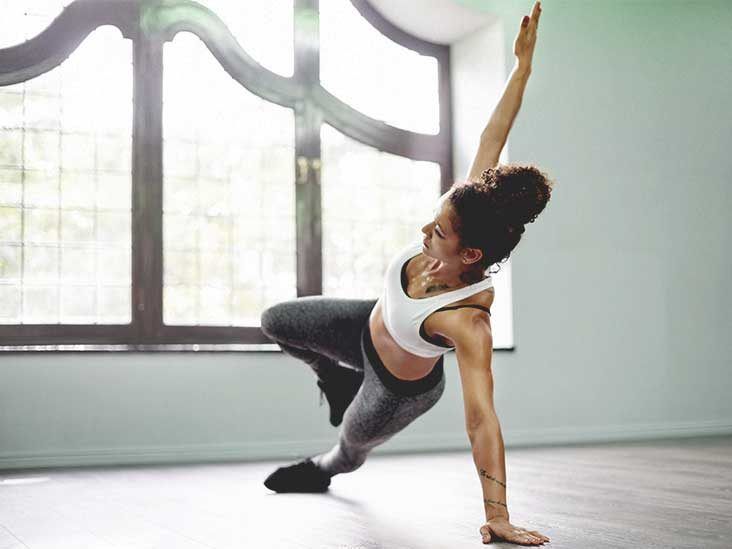
Credit: www.healthline.com
Key Components Of Body Composition
Understanding body composition is vital for overall health and fitness. It includes several key components that determine the state of your body. Here we will discuss two main components: lean muscle mass and body fat percentage.
Lean Muscle Mass
Lean muscle mass is the weight of the muscles in your body. This includes skeletal muscles, smooth muscles, and water in muscle tissues.
Exercises to increase lean muscle mass:
- Weight lifting – Strengthens and builds muscle.
- Bodyweight exercises – Push-ups, pull-ups, and squats.
- Resistance bands – Adds extra resistance to workouts.
Body Fat Percentage
Body fat percentage is the amount of fat in your body. This is compared to your total body weight.
Exercises to reduce body fat percentage:
- Cardio exercises – Running, cycling, and swimming.
- High-Intensity Interval Training (HIIT) – Short bursts of intense exercise.
- Aerobic exercises – Dancing, hiking, and jumping rope.
Balanced nutrition also plays a key role in managing body composition. Consuming a diet rich in proteins, healthy fats, and complex carbohydrates supports your exercise efforts.
Resistance Training For Muscle Building
Resistance training helps build muscle and improve body composition. It involves exercises that make your muscles work against a force. This type of training can include weightlifting, bodyweight exercises, and using resistance bands. Below, we will explore two popular methods: weightlifting and bodyweight exercises.
Weightlifting Basics
Weightlifting is a common resistance training method. It uses free weights or machines to build muscle. Here are some basic exercises:
- Squats: Squats target your legs and glutes. You can use a barbell or dumbbell.
- Bench Press: Bench presses work your chest, shoulders, and triceps. Use a barbell or dumbbell for this exercise.
- Deadlifts: Deadlifts strengthen your back, legs, and core. A barbell is often used for this movement.
- Bicep Curls: Bicep curls focus on your biceps. Dumbbells or barbells are suitable for this exercise.
These exercises help build muscle and improve strength. It’s important to use proper form to avoid injury.
Bodyweight Exercises
Bodyweight exercises use your own body as resistance. They are effective for building muscle and can be done anywhere. Here are some examples:
- Push-Ups: Push-ups work your chest, shoulders, and triceps. They also engage your core.
- Pull-Ups: Pull-ups strengthen your back, shoulders, and arms. You need a bar for this exercise.
- Planks: Planks target your core muscles. They also help improve stability and balance.
- Lunges: Lunges focus on your legs and glutes. They also help improve balance and coordination.
Bodyweight exercises are great for beginners and advanced athletes. They can be easily modified to increase or decrease difficulty.
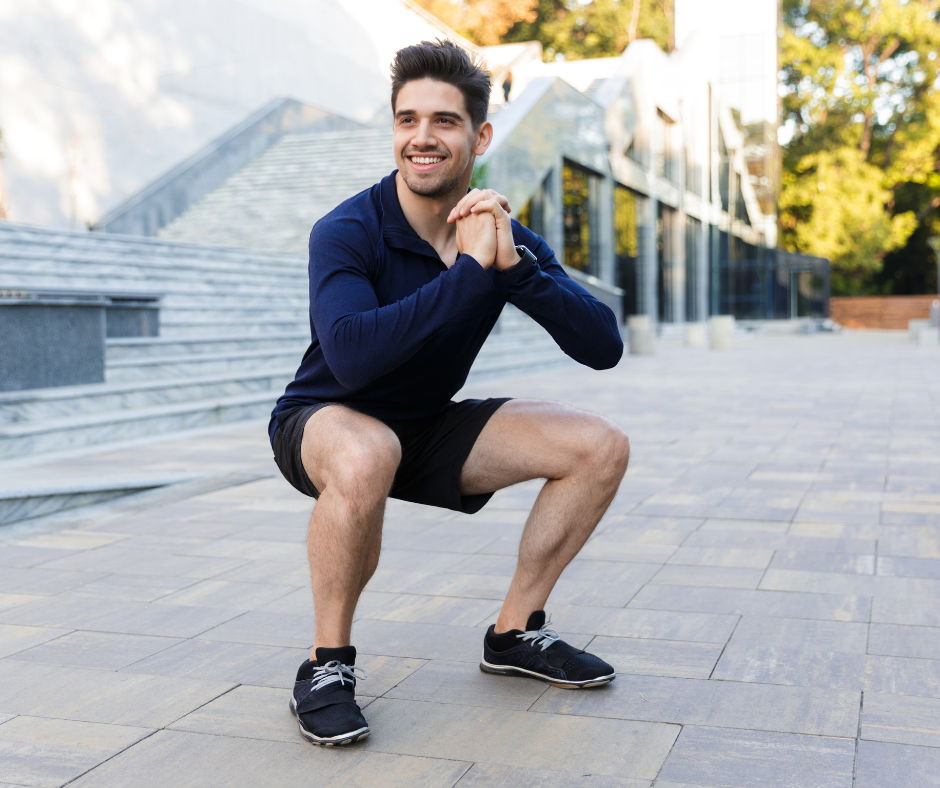
Credit: www.styku.com
Cardiovascular Workouts For Fat Loss
Cardiovascular workouts help to burn fat and improve heart health. They raise your heart rate and boost your metabolism. Here are some effective cardio workouts for fat loss.
High-intensity Interval Training (hiit)
High-Intensity Interval Training, or HIIT, is a popular fat-burning workout. It involves short bursts of intense activity followed by rest periods. This method burns more calories in less time.
- Sprints: Run as fast as you can for 30 seconds, then rest for 1 minute.
- Jumping Jacks: Do jumping jacks for 20 seconds, then rest for 10 seconds.
- Burpees: Perform burpees for 30 seconds, then rest for 30 seconds.
HIIT workouts can be done with various exercises. The key is to push your limits during the intense periods.
Steady-state Cardio
Steady-State Cardio involves maintaining a consistent pace over a longer period. It is less intense than HIIT but still effective for fat loss. This workout is easier on the joints and suitable for all fitness levels.
| Exercise | Duration |
|---|---|
| Running | 30-45 minutes |
| Cycling | 45-60 minutes |
| Swimming | 30-60 minutes |
Steady-State Cardio helps build endurance and burns calories steadily. It is perfect for those who prefer a slower pace.
Integrating Flexibility And Mobility
Flexibility and mobility exercises are essential for a balanced fitness routine. They enhance your body’s range of motion, reduce the risk of injury, and improve overall performance. Let’s delve into some effective exercises that integrate flexibility and mobility.
Yoga And Pilates
Yoga and Pilates are excellent for enhancing flexibility and mobility. Both practices emphasize controlled movements and proper breathing techniques.
- Yoga: Focuses on static stretching and holding poses.
- Pilates: Combines flexibility with strength training exercises.
| Exercise | Benefits |
|---|---|
| Downward Dog | Improves hamstring flexibility and shoulder strength |
| Child’s Pose | Stretches the back and hips |
| Pilates Roll-Up | Enhances spinal flexibility and core strength |
Dynamic Stretching Routines
Dynamic stretching involves moving parts of your body and gradually increasing reach, speed of movement, or both.
- Leg Swings: Improves hip flexibility and mobility.
- Arm Circles: Enhances shoulder range of motion.
- Lunges with a Twist: Stretches the hip flexors and improves spinal mobility.
These exercises can be performed as part of a warm-up routine. They prepare your muscles for more intense workouts. Dynamic stretches are particularly useful before engaging in sports or high-intensity training.
Nutrition’s Impact On Body Composition
Nutrition plays a vital role in shaping your body composition. What you eat affects muscle gain, fat loss, and overall body health. Understanding the types of foods to eat can make a significant difference. Here, we explore how macronutrients, caloric intake, and hydration influence body composition.
Macronutrients And Caloric Intake
Macronutrients include proteins, carbohydrates, and fats. Each plays a unique role in body composition.
- Proteins: Essential for muscle growth and repair. Aim for lean sources like chicken, fish, and beans.
- Carbohydrates: Provide energy for workouts. Choose complex carbs like whole grains and vegetables.
- Fats: Necessary for hormone production and brain function. Opt for healthy fats from avocados, nuts, and olive oil.
Caloric intake is equally important. To lose fat, consume fewer calories than you burn. To build muscle, consume more calories than you expend. Balance is key.
Hydration And Metabolism
Hydration affects metabolism and overall body function. Water is vital for nutrient transport and muscle function. Drink at least 8 glasses of water daily.
Proper hydration also aids in digestion and helps your body burn calories more efficiently. A well-hydrated body performs better during exercise, leading to improved body composition.
| Nutrient | Role in Body Composition | Best Sources |
|---|---|---|
| Protein | Muscle growth and repair | Chicken, fish, beans |
| Carbohydrates | Energy for workouts | Whole grains, vegetables |
| Fats | Hormone production, brain function | Avocados, nuts, olive oil |
Tracking Progress And Setting Goals
Tracking progress and setting goals are essential for effective body composition exercises. Without proper tracking, it’s hard to know if you’re improving. Setting clear goals keeps you motivated and focused.
Measuring Body Composition
There are various ways to measure body composition. Each method offers unique insights into your fitness journey.
Body Mass Index (BMI):
- Calculates weight in relation to height.
- Doesn’t differentiate between muscle and fat.
Body Fat Percentage:
- More accurate than BMI.
- Measures the proportion of fat to total body weight.
Waist-to-Hip Ratio:
- Compares waist and hip measurements.
- Helps assess fat distribution in the body.
Use these methods regularly to track changes. Consistency is key for accurate measurements.
Adjusting Exercise Regimens
Adjusting your exercise regimen is crucial for ongoing progress. Different exercises target different aspects of body composition.
Strength Training:
- Builds muscle mass.
- Increases metabolism.
Cardio Exercises:
- Burns calories.
- Improves cardiovascular health.
Flexibility and Balance Workouts:
- Enhance movement range.
- Reduce injury risk.
Adjust your workouts based on your goals. For muscle gain, focus on strength training. For fat loss, prioritize cardio. Balance is key for overall fitness.
Track your progress and tweak your exercises accordingly. This ensures continuous improvement and goal achievement.
Common Mistakes To Avoid
Understanding the correct approach to body composition exercises is crucial. Many people make common mistakes that can hinder progress. Knowing what to avoid ensures a safer, more effective workout.
Overtraining Risks
Overtraining can lead to injuries and burnout. It’s important to listen to your body. Avoid pushing yourself too hard. This can cause muscle strain and fatigue.
Follow a balanced workout schedule. Include rest days to allow muscle recovery. Overtraining can also weaken your immune system.
- Muscle soreness lasting several days
- Feeling exhausted instead of energized
- Frequent injuries
Neglecting Diet Or Rest
Diet and rest are vital for body composition. Exercise alone is not enough. Ignoring nutrition and sleep can stall progress.
Eat a balanced diet rich in proteins, carbs, and healthy fats. Drink plenty of water to stay hydrated. Ensure you get at least 7-9 hours of sleep every night.
| Component | Importance |
|---|---|
| Protein | Muscle repair and growth |
| Carbohydrates | Energy source |
| Fats | Hormone production |
| Water | Hydration and nutrient transport |
Skipping meals or not sleeping well can decrease your performance. Your body needs fuel and rest to build muscles effectively.
Real-world Success Stories
Body composition exercises have changed many lives. These workouts help individuals achieve their fitness goals. Below, we share some inspiring examples of success. These stories highlight the power of dedication and the right exercise plan.
Before And After Transformations
Many people have seen amazing changes in their bodies. Here are a few examples:
| Name | Before | After |
|---|---|---|
| John | 250 lbs, 30% body fat | 180 lbs, 15% body fat |
| Emily | 200 lbs, 35% body fat | 150 lbs, 20% body fat |
| David | 220 lbs, 25% body fat | 180 lbs, 18% body fat |
Testimonials And Inspirations
Here are some personal stories from those who succeeded:
- Sarah: “Body composition exercises changed my life. I gained confidence.”
- Mike: “Losing weight wasn’t easy. But these exercises made it possible.”
- Linda: “I feel stronger and healthier. My journey was worth it.”
These testimonials show that anyone can achieve their goals. Consistency and the right approach lead to success.
Incorporating Variety Into Workouts
Incorporating variety into your workout routine is essential. It helps keep your body challenged and prevents plateaus. Using different exercises can target various muscle groups. This leads to a more balanced and effective fitness regimen.
Circuit Training
Circuit training is a fantastic way to mix things up. It involves rotating through a series of exercises. Each exercise targets different parts of your body. This keeps your heart rate up while building muscle.
Here’s an example of a circuit training routine:
| Exercise | Duration |
|---|---|
| Jumping Jacks | 1 minute |
| Push-Ups | 1 minute |
| Squats | 1 minute |
| Plank | 1 minute |
| Burpees | 1 minute |
Repeat the circuit 2-3 times for a complete workout. This ensures you target multiple muscle groups. It also keeps the workout exciting and engaging.
Cross-training For All-round Fitness
Cross-training involves using different types of exercises. This approach helps to improve overall fitness. It reduces the risk of injury and keeps workouts interesting.
Here are some popular cross-training activities:
- Running
- Swimming
- Cycling
- Weightlifting
- Yoga
Each activity targets different muscle groups. Running and cycling improve cardiovascular health. Weightlifting builds strength and muscle mass. Swimming provides a full-body workout. Yoga enhances flexibility and balance.
Combine these activities in your weekly routine. This ensures a well-rounded fitness regimen. For example, you can run on Monday, swim on Wednesday, and do yoga on Friday. This keeps your body guessing and constantly improving.
Advanced Techniques For Experienced Athletes
Advanced athletes need targeted exercises for optimal body composition. These advanced techniques enhance performance and sculpt the body. Focus on periodization training and functional movement exercises.
Periodization Training
Periodization training is a structured exercise plan. It alternates between various training phases. These phases include:
- Preparation Phase: Focus on low-intensity, high-volume workouts. Improve endurance and strength.
- Hypertrophy Phase: Increase muscle mass with moderate intensity, moderate volume exercises.
- Strength Phase: High-intensity, low-volume workouts boost strength.
- Peak Phase: Maximize performance with very high-intensity, very low-volume exercises.
- Recovery Phase: Low-intensity workouts aid in muscle recovery and mental relaxation.
Effective periodization enhances overall performance. It prevents overtraining and reduces injury risk. Advanced athletes benefit greatly from this structured approach.
Functional Movement Exercises
Functional movement exercises mimic real-life activities. They improve coordination, balance, and strength. Key exercises include:
- Deadlifts: Strengthen lower back, glutes, and hamstrings. Use proper form to avoid injury.
- Squats: Target quadriceps, hamstrings, and glutes. Ensure knees do not extend past toes.
- Lunges: Enhance balance and leg strength. Alternate legs for balanced development.
- Push-Ups: Build upper body strength. Keep body aligned for maximum benefit.
- Pull-Ups: Improve upper body and core strength. Vary grip to target different muscle groups.
Functional movement exercises are essential for advanced athletes. They enhance performance and support daily activities.
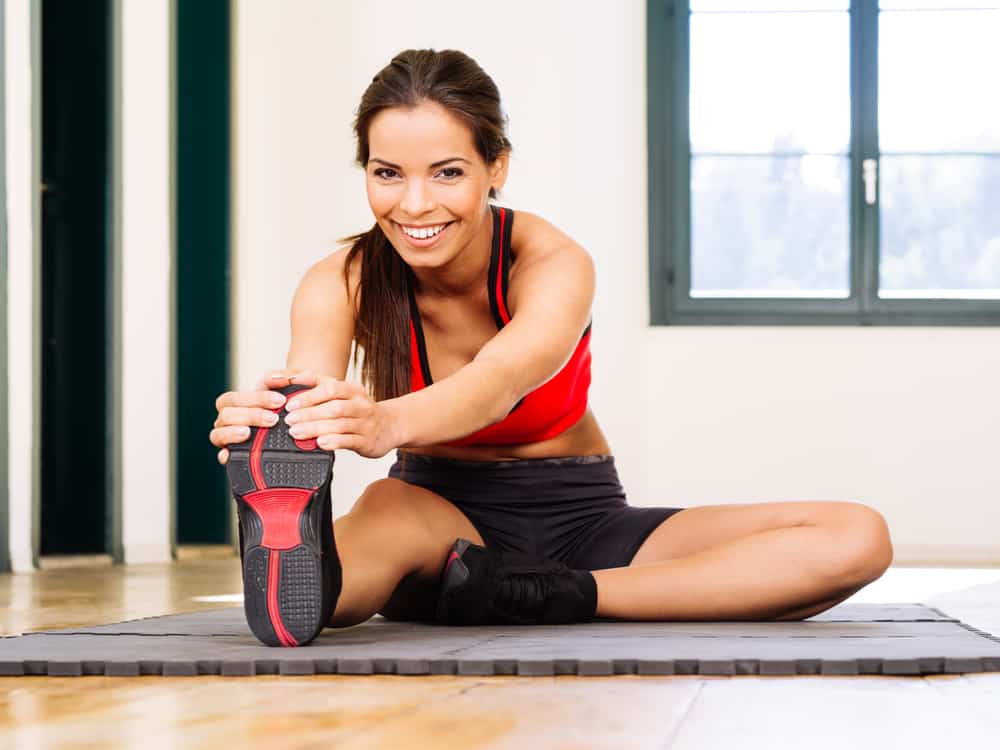
Credit: betterme.world
Frequently Asked Questions
What Is A Body Composition Exercise?
A body composition exercise focuses on reducing fat and increasing muscle mass. Activities include weight training, HIIT, and cardio. These exercises improve overall fitness and health, enhancing muscle tone and reducing fat percentage. Consistency and a balanced diet are key to achieving optimal results.
What Type Of Exercise Is Best For Body Composition?
Strength training combined with high-intensity interval training (HIIT) is best for improving body composition. These exercises boost metabolism and burn fat while building muscle.
What Is A Good Example Of Body Composition?
A good example of body composition is having a balanced ratio of muscle to fat. This includes strong muscles, minimal excess fat, and healthy bone density. An ideal body composition improves overall health and fitness. Regular exercise and a balanced diet help achieve and maintain this optimal state.
What Is 5 Body Composition?
5 body composition refers to the breakdown of the body into five key components: fat, muscle, bone, water, and organs.
Conclusion
Achieving a balanced body composition requires consistent effort and targeted exercises. Incorporate strength training, cardio, and flexibility routines into your weekly schedule. Remember to stay hydrated and maintain a balanced diet. With dedication and the right exercises, you can enhance your overall fitness and body composition effectively.
Start your journey today!

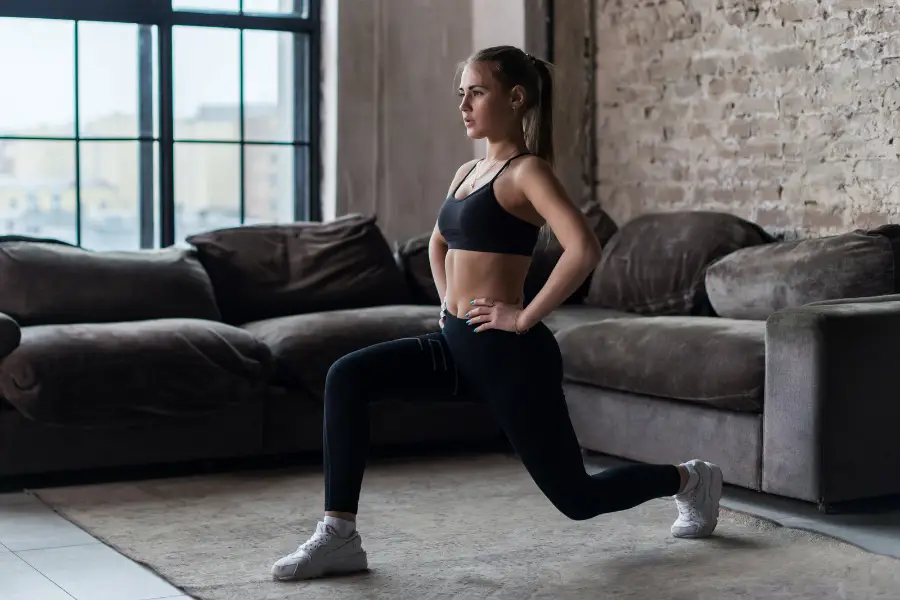

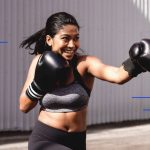

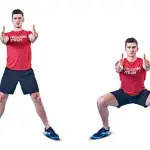
Comments are closed.